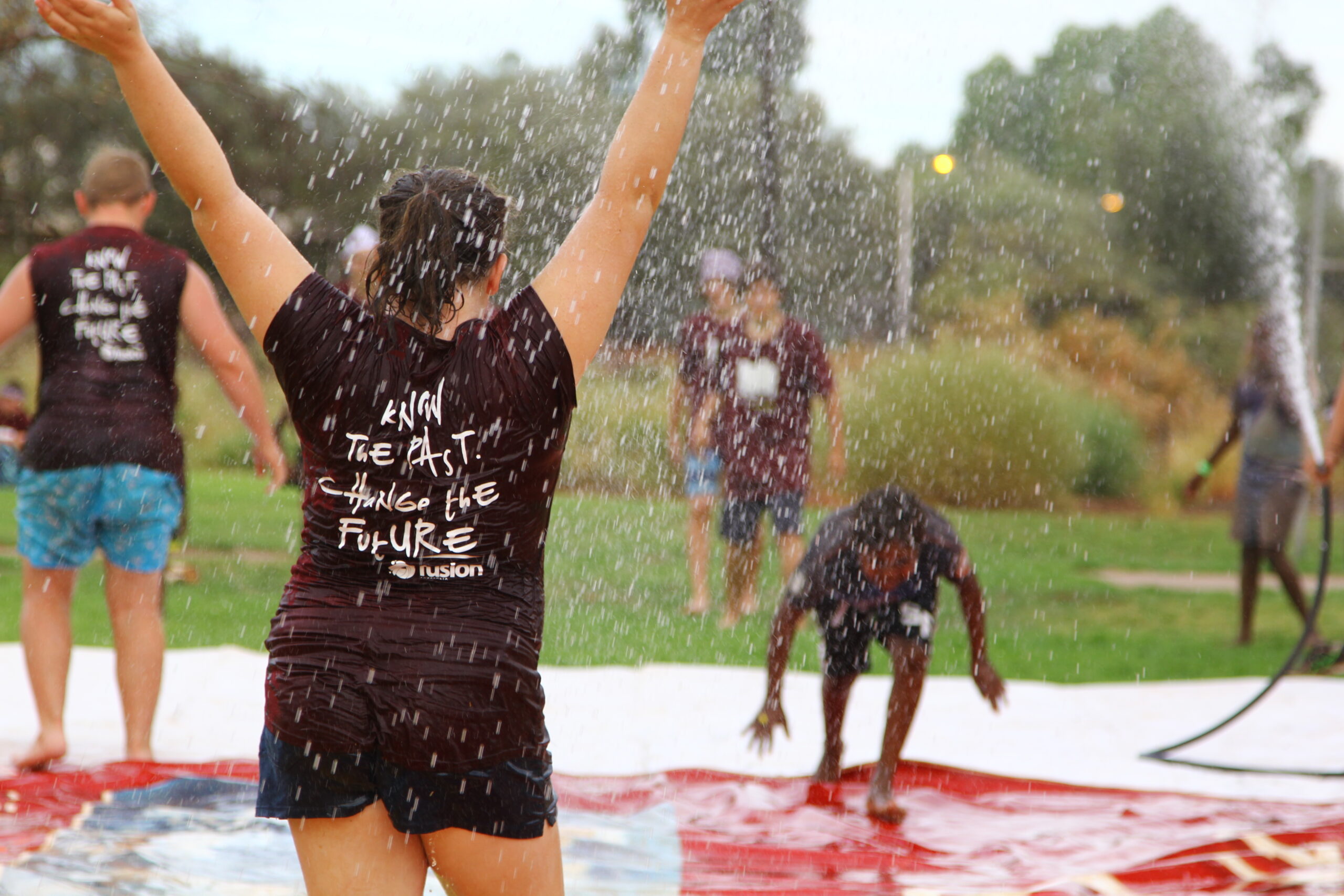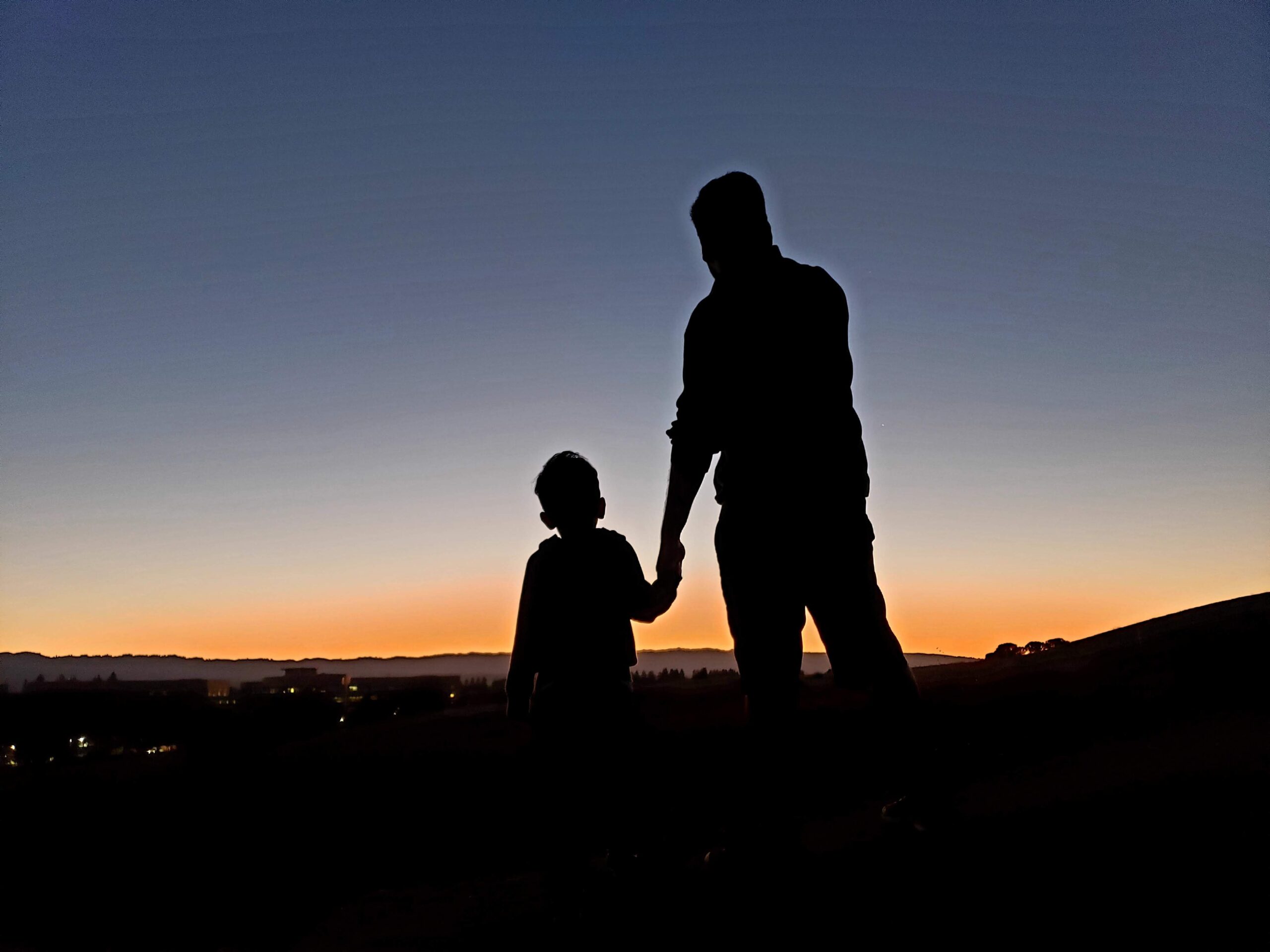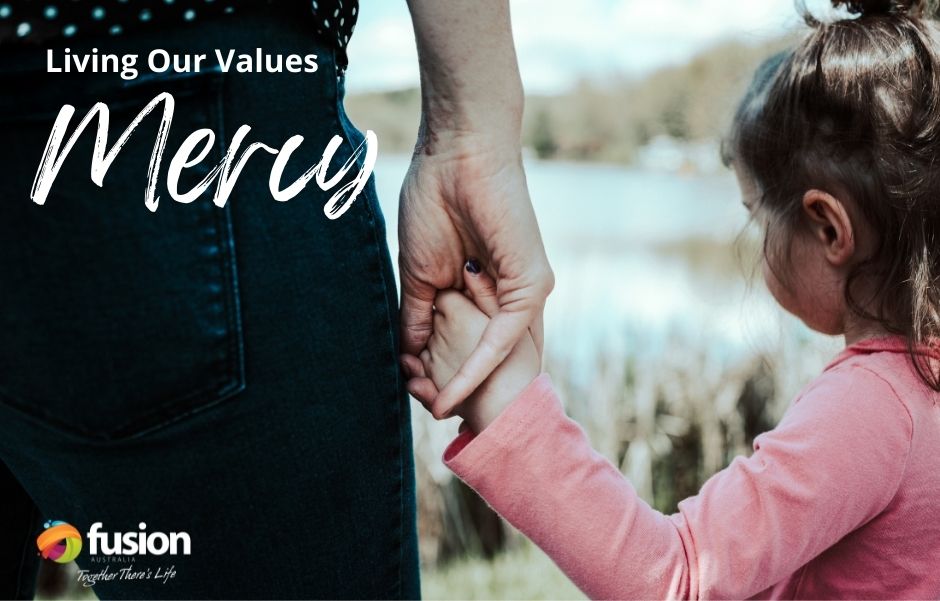Those of us who’ve lived in the dustbowls of droughted Australia know well the gift of gentle rain, the fresh smell of raindrops hitting the parched earth and the soft gentle greening that follows. This is not the harsh scouring of flash flooding, that rips its way down gullies and streets leaving a wake of destruction, but life-giving restoration and refreshment.
If you studied Shakespeare at school, you might remember Portia’s famous words in the Merchant of Venice.
“The quality of mercy is not strained, it droppeth as the gentle rain from heaven upon the place beneath.”

Image: Water fun on the Pilgrimage to Uluru
I wonder how many people in battered Ukraine, or divided Nigeria, or Indian slums, or Chinese lock-downed apartments, or Centrelink phone queues, or courtrooms and prison cells, or family violence refuges, long for a gentle and restoring rain of freedom, healing love and second chances?
Life Seems Unfair
We often feel powerless in situations that seem unfair: children with incurable diseases, families grieving after tragic accidents, old people dying in lonely nursing homes, victims of famine and flood. There are many situations that generate our anger too, as we react to the hurt caused by the ‘bad’ behaviour, foolish choices, or deliberate violence of others: war crimes, drunk drivers, sexual predators, corruption, theft, murder.
Before capital punishment was abolished, the last man hung in Australia was Ronald Ryan. In an interview, his mother said that she didn’t believe he was guilty, as a young boy he was always so kind and gentle with little birds.
One of the words we translate into ‘mercy’ in English, comes from the Hebrew word ‘rechem’, meaning womb. Mercy is about caring for another with the protective love of a mother for her baby. In Ryan’s case, his mother was powerless to stop the course of justice. And it is when we are powerless that we cry out for mercy, to those who have the power to alter our circumstances.
Being Merciful Requires Power
To show mercy we need to have the power to do so. If we use that power, then we give life to the other person. It’s an opportunity to move on from the past, and let a new future grow for the person forgiven. For the one showing mercy, it brings the blessing of giving love and life, with the hope of a new relationship. The more powerful we are, the more generous we can be with our mercy.
Jesus and Mercy
Jesus’ famously told the story of ‘The prodigal son’, a young man who took his inheritance early, squandered it, and later returned to admit his fault and plead with his father for a basic job so he could live. His father’s ‘just’ response would have been to say, ‘you’ve had your share; suffer the consequences and learn a lesson’. The father’s merciful, hugely generous, response, was to throw a party and welcome him home.

CheckJesus, in his own agonising dying, forgave a thief. He also recruited a corrupt tax agent or two, was betrayed by one friend, and deserted by the others. Jesus gave these same deserters another chance, and the responsibility of carrying on the work he’d begun.
Kindness in Action
In COVID lockdowns, there were many heart-warming stories of those who made kindness a priority. Hugh Mackay’s book “The Kindness Revolution: How we can restore hope, rebuild trust and inspire optimism” was an affirmation of what he observed following the 2020 bushfires and pandemic. Common difficulties brought out a generous, merciful community spirit.
On the flip side, however, we’ve also seen the rates of domestic and family violence spike, and rental increases make housing unaffordable and scarce. We are now hearing story after story of people forced to live in cars, tents or couch-surf. Our renowned ‘helping a mate’ is only one side of the story.
How do we make Mercy stick?
How can we embed mercy into our community? Do we want to? Is it practical? Are we just ‘do-gooders’?
In his book, Hugh Mackay observes, “Revolutions never start at the top. If we dare to dream of a more loving country – kinder, more compassionate, more cooperative, more respectful, more inclusive, more egalitarian, more harmonious, less cynical – there’s only one way to start turning that dream into a reality: each of us must live as if this is already that country.”
It starts with me and you
Next time someone asks for help, will you be generous? Next time someone annoys you, will you pause to be kind? Next time your are frustrated, will you choose to be patient, rather than ignore or whinge about the situation? Next time you need some help, will you dare to ask someone? Next time someone says sorry, will you forgive them?
At the very least, we can learn to pray with the ancients: “God, have mercy on me, a sinner.”
To talk to us more about Mercy or other Revolutionary Values, contact our Training Team. We’d love to work with you to tailor training that’s the right fit for your group!
Find out about our TRAINING opportunities.
Check out our other Blogs about Values.
